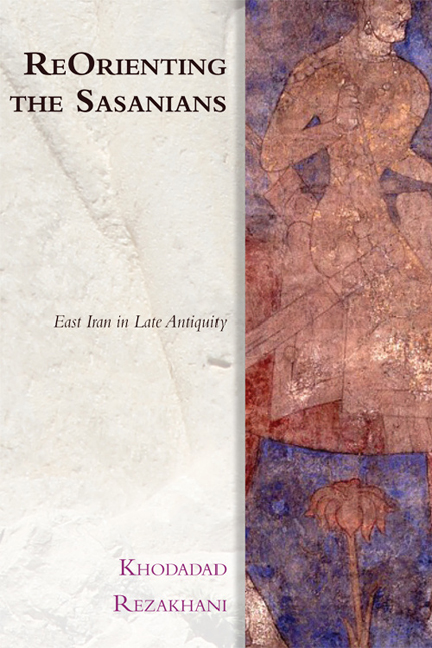Book contents
- Frontmatter
- Contents
- List of Illustrations
- Acknowledgements
- Series Editor's Preface
- Maps
- Preface
- Introduction
- 1 The Sasanians and the Sistanis
- 2 The Kushans and the Sasanians
- 3 The Kushano-Sasanians in East Iran
- 4 The Iranian Huns and the Kidarites
- 5 The Alkhans in the Southern Hindu Kush
- 6 The Hephthalite ‘Empire’ and its Successors
- 7 Sogdiana in the Kidarite and Hephthalite Periods
- 8 The Nēzak and Turk Periods
- 9 Tokharistan and Sogdiana in the Late Sasanian Period
- 10 General Conclusions and Postscript
- 11 Epilogue and Excursus on the Shahnameh
- Bibliography
- Index
5 - The Alkhans in the Southern Hindu Kush
Published online by Cambridge University Press: 07 December 2017
- Frontmatter
- Contents
- List of Illustrations
- Acknowledgements
- Series Editor's Preface
- Maps
- Preface
- Introduction
- 1 The Sasanians and the Sistanis
- 2 The Kushans and the Sasanians
- 3 The Kushano-Sasanians in East Iran
- 4 The Iranian Huns and the Kidarites
- 5 The Alkhans in the Southern Hindu Kush
- 6 The Hephthalite ‘Empire’ and its Successors
- 7 Sogdiana in the Kidarite and Hephthalite Periods
- 8 The Nēzak and Turk Periods
- 9 Tokharistan and Sogdiana in the Late Sasanian Period
- 10 General Conclusions and Postscript
- 11 Epilogue and Excursus on the Shahnameh
- Bibliography
- Index
Summary
INTRODUCTION
Alkhan is the name given to a dynasty of ‘Hunnic’ rulers of the southern Hindu Kush who followed the Kidarites in this region. This name is taken from the Bactrian legends of their coins and most likely designates a tribal or dynastic identity. These rulers, originating from the northern Hindu Kush region, initially occupied the Kabul Valley and then Gandhara, following the pattern set by the Kushans and followed by the Kidarites. Their further conquests took them eastward to Kashmir and central India, probably as far as Malwa, where they were stopped by local Indian dynasts. Their distinctive coin style distinguished them immediately from other Hunnic authorities and is the basis of the mostly numismatic convention of separating them from the Hephthalites. On the other hand, in their initial stages, they may have been closely related to both the Hephthalites and the Kidarites, indeed issuing coins with the latter. Their rule in northern India left an important memory in Hindu literature, particularly the misrule of one of their most significant kings, Mihirakula. While never really showing a strong presence in Bactria/Tokharistan, Alkhan rule in the Kabul region and Gandhara was fundamental in the formation of a coherent region in the southern Hindu Kush and is crucial in the formation of the units of Kabulestan and Zabulestan, both important regions in the history of East Iran. The Alkhans’ artistic production, including their iconography, was remembered for a long time and influenced painting styles as far north as Panjikent (Marshak 2002). Despite the near-silence of historical sources about them, the Alkhans were an important political and cultural force in East Iran, and we should assign many of the historical events previously attributed to the ‘Hephthalites’ to them.
THE IDENTITY OF THE ALKHANS
The quest to recognise the Alkhans as a separate entity has been a long and arduous one. Traditionally, most historians have considered them part of the Hephthalites, with even some numismatists taking the same view.
- Type
- Chapter
- Information
- ReOrienting the SasaniansEast Iran in Late Antiquity, pp. 104 - 124Publisher: Edinburgh University PressPrint publication year: 2017



